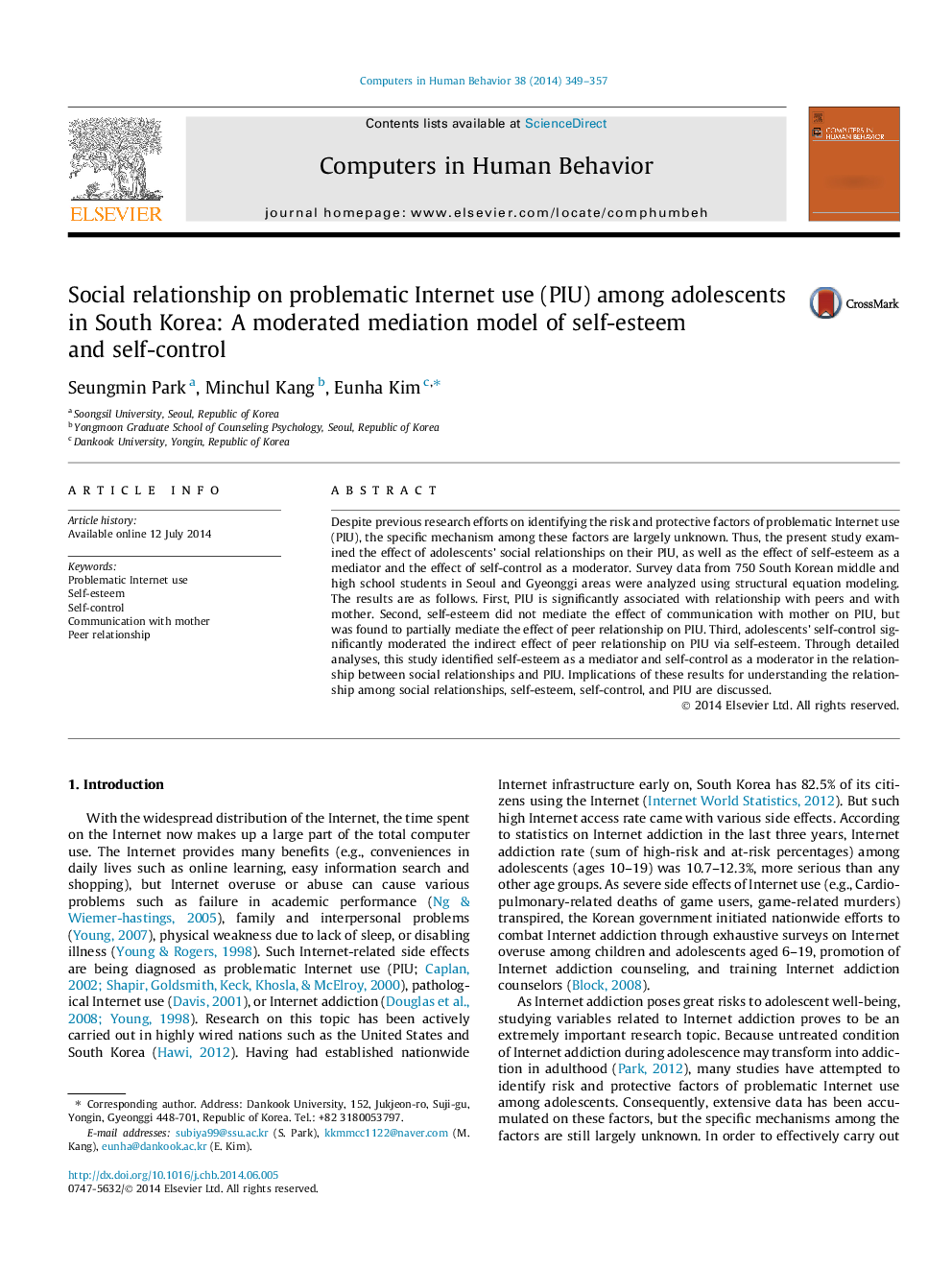| کد مقاله | کد نشریه | سال انتشار | مقاله انگلیسی | نسخه تمام متن |
|---|---|---|---|---|
| 350644 | 618454 | 2014 | 9 صفحه PDF | دانلود رایگان |
• PIU is significantly associated with relationship with peers and with mother.
• Self-esteem did not mediate the effect of communication with mother on PIU.
• Self-esteem partially mediated the effect of peer relationship on PIU.
• Self-control moderated the indirect effect of peer relationship on PIU via self-esteem.
Despite previous research efforts on identifying the risk and protective factors of problematic Internet use (PIU), the specific mechanism among these factors are largely unknown. Thus, the present study examined the effect of adolescents’ social relationships on their PIU, as well as the effect of self-esteem as a mediator and the effect of self-control as a moderator. Survey data from 750 South Korean middle and high school students in Seoul and Gyeonggi areas were analyzed using structural equation modeling. The results are as follows. First, PIU is significantly associated with relationship with peers and with mother. Second, self-esteem did not mediate the effect of communication with mother on PIU, but was found to partially mediate the effect of peer relationship on PIU. Third, adolescents’ self-control significantly moderated the indirect effect of peer relationship on PIU via self-esteem. Through detailed analyses, this study identified self-esteem as a mediator and self-control as a moderator in the relationship between social relationships and PIU. Implications of these results for understanding the relationship among social relationships, self-esteem, self-control, and PIU are discussed.
Journal: Computers in Human Behavior - Volume 38, September 2014, Pages 349–357
